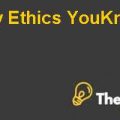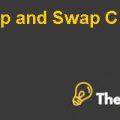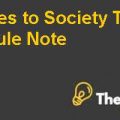
Having external directors on Board:
The Chairman can also reduce the agency conflict between Tyme and other directors by adding more external directors on Cambridge Tymes’ Board.
Any company’s BOD comprises of both outside and inside directors. By having external directors, more expertise is added in the BOD’s competencies in the fields of business strategy development, organizational structure and Finance. Moreover, external directors have an independence that transfers with it greater objectivity in observing the behavior of management.
Adding an external director will reduce Tyme’s concern that the BOD is not making correct decisions and efficient utilization of resources in the interests regarding the growth of Cambridge Tymes; as an external director will have a more neutral opinion in the discussion.
A company’s BOD which is composed of completely insiders cannot be valuable because of the likelihood for permitting managerial entrenchment. While a company’s BOD which is composed of completely outsiders cannot be effective if the board has an incomplete comprehension of the company they are governing and will not be able to overcome the information asymmetry.
However, there is a possibility that Tyme does not like this measure as he may think that the external director may not have the required understanding of the mission and vision of the Cambridge Tymes. As Cambridge Tymes is the brain child of Tyme, he may not believe that any external individual can give same dedication to the company as the Cambridge Tymes’ internal directors can give. Moreover, as a director had sold his own company’s land to Cambridge Tymes for a higher price, this will also reduce Tyme’s interests in any other external director.
Threat of Takeover:
The Chairman of Cambridge Tymes can use threat of takeovers as a tool to control the decisions of directors. Chairman can ask the Directors that Tyme does not want his company to become prospective target for takeover thus, the board of directors must be vigilant in their decisions.
Cohen and Uliana (1990) cited a finding by Jensen and Ruback that suggested that the threat of takeover can help in monitoring the actions of BOD. If the decisions of BOD reduce the future value of the company, the share price typically declines as well. In some cases, the business can become a prospective target for takeover. If the directors of such a company are changed, the move can be advantageous to the shareholders. Therefore, it can be said that the threat of takeovers can serve as an external governing tool which confirms that the decisions of directors maximize shareholders' worth.
The cons of this measure can be that it is not that much effective as compared to the other measures because the directors may not believe that their decisions are so ineffective that the firm becomes a prospective target for takeover. Thus, the threat may not be adequate to be an incentive for directors to avoid conflict of interest.
The change of the directors as a result of the takeover will also not be in the interest of Tyme as due to takeover Tyme will lose his percentage of ownership in the company.
Requiring strict financial reporting:
Financial reporting is an international requirement that each company has to meet. Financial reporting can also become a means of reducing the conflict between the Cambridge Tymes’ Board and Tyme by reducing the information asymmetry between the directors and the owners. From the financial reporting, the company discloses the information regarding the available resources, cash availability and the future plans of the company. This will give the owners, the information that substantiates the decisions taken by the management.
The shareholders’ right of information is an important value in the good practices of corporate governance and the board is liable for confirming its satisfactory operation and the establishment of an effective communication with shareholders.
Bushman et al. (2004), Ahmed and Duellman (2007) suggest that outside directors need high-quality timely reporting to efficiently control and direct managers, but managers have increased information than external directors and may also get incentives to misrepresent and cover their private information. Contracts can also be established between the directors and the owners. Such contracts mostly need directors to disclose relevant information that allow investors to control compliance with contractual agreements and to assess whether directors have controlled the company’s resources in the interests of owners...............................
This is just a sample partial case solution. Please place the order on the website to order your own originally done case solution.













